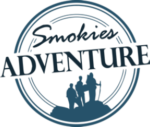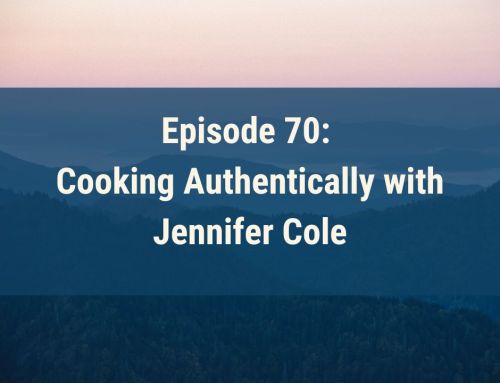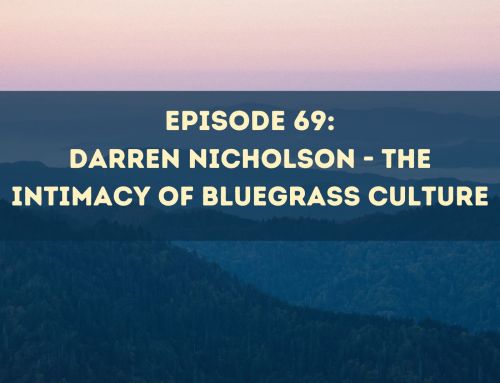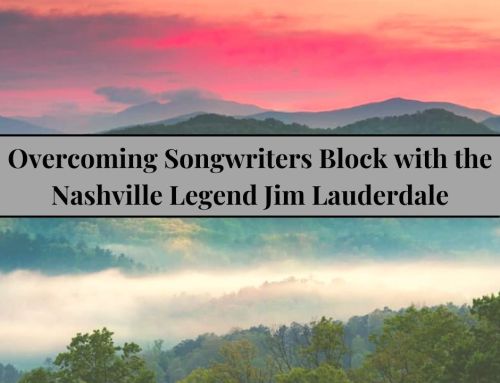About this Episode:
In this episode of “Gateway to the Smokies Podcast,” host Joseph Franklyn McElroy introduces listeners to Andrew Wakefield, an Asheville-based musician known for blending traditional and modern sounds into his music. Andrew shares his global influences, from a childhood in Korea to Southern and Appalachian music. They discuss Andrew’s journey through various music genres, his current bluegrass focus, and the importance of live performance energy. The conversation also touches on the challenges of a musician’s life, including constant travel and the need for creative space. Andrew highlights Chimney Rock as a must-visit in the Smoky Mountains and recommends Gypsy Queen for dining in Asheville. Listeners can learn more about Andrew’s work and upcoming gigs through his website.
Connect with Andrew Wakefield:
Connect with our host Joseph Franklyn McElroy:
Check out our Social Media:
Transcript:
Joseph: [00:27 – 00:38] Welcome to the Gateway to the Smokies podcast. I’m your host, Joseph Franklyn McElroy, born and bred right here in Haywood County, North Carolina, the original Gateway to the Smokies.
Joseph:[00:38 – 00:52] Our podcast is your audio passport to the adventures, stories, personalities, and rich culture deeply rooted in these ancient mountains. Every week we delve into the heart of these ancient mountains where people have thrived
Joseph:[00:52 – 01:04] for over 3,000 years. We’re not just here to share travel tips. We’re here to bring you closer to boundless adventures and memorable retreats awaiting you in this beautiful region.
Joseph: [01:05 – 01:16] Today we have a very special episode as we venture into the melodious trails of the Smokies with our guest, Andrew Wakefield, a talented guitarist, songwriter, and singer based in
Joseph: [01:16 – 01:27] Asheville, North Carolina. His music is a beautiful blend of the old and the new, resonating with the natural harmonies of our beloved Smokies. How are you doing, Andrew?
Andrew: [01:28 – 01:30] I’m great. How are you?
Joseph: [01:30 – 01:42] Well, we’re delighted to have you here today. So, one of the things we’re going to do real quick is a little snippet of your music so everybody knows what we’re talking about, all right?
Andrew: [01:43 – 01:44] Sounds good.
Joseph: [03:20 – 03:38] That was great. All right. So, you’ve been all over the map. You know, I see you travel over the place both and I think live too, both geographically and musically. How have the places you’ve lived shaped your musical style and influences?
Andrew: [03:39 – 03:52] Well, I pretty much like every single style of music out there on the planet besides pop. So, I think I would say it’s made me well-rounded.
Joseph: [03:52 – 03:57] What would you say are the places that have most influenced you?
Andrew: [03:57 – 04:33] Well, I spent my first 10 years in Korea because my parents were Baptist missionaries. So, that was a huge part of my formative young years. And after that, I’ve been mostly in the South except for a stint in California. So, a lot of Southern culture, you know, which also translates to Appalachian music and some country too.
Joseph: [04:34 – 04:52] Right. Well, you mentioned your family. The early part of your life was in Korea and then your family, I guess, they’ve been a pivotal part of your story, of your journey and your musical journey. What memorable story from your childhood can you think of that might have particularly shaped your path?
Andrew: [04:53 – 05:22] We used to, my family used to do events and my dad would play guitar and my mom would sometimes play, not fiddle, but violin. And we would all sing hymns mostly at usually holiday events, but sometimes just church stuff. So, stuff like that. The family singing together, I guess.
Joseph: [05:23 – 05:36] Well, that’s an old mountain tradition, right? And gospel tradition. So, it brings you some roots there, right? Now, I understand you did some psychedelic rock?
Andrew: [05:36 – 06:02] Yeah, I was probably a dirty hippie for quite a while and got into the jam band scene and then got into a lot of psychedelic rock. That was kind of what I was really into a while back. And so, I tried that for a while and then I sort of fell into bluegrass about six years ago and never looked back.
Joseph: [06:03 – 06:15] Well, that’s fascinating. What elements of those genres do you think still linger in your bluegrass music?
Andrew [06:16 – 06:50] Probably in my songwriting, I think I try to make the songs maybe a little more epic, I guess you could say, or have a little more buildup and also maybe a little more intricate, maybe some more parts than you would regularly do in bluegrass. I really like writing long solos or duet solos and things like that, too.
Joseph: [06:51 – 06:56] Which is, I guess, yeah, the psychedelic stuff. A lot of it is just listening to those long solos, isn’t it? Right?
Andrew [06:57 – 07:03] Yes. That doesn’t really come out too much on the record, but if you go to a live show, you’ll definitely hear some elements.
Joseph: [07:03 – 07:23] Well, when we’ve had you at the Meadowlark, you’ve been really good at doing some interesting performances. And I’ve noticed that you’d sometimes just get into a zone and do a nice long piece of music, which is pretty great. People love it, right?
Andrew [07:24 – 07:30] Yeah. If the feeling strikes you and you find a little pocket, then you stick with it and see where it goes.
Joseph: [07:31 – 07:40] Yeah. I love it when you also, when the audience suggests something, this might not even be bluegrass, but you just go with it.
Andrew: [07:40 – 07:41] Definitely.
Joseph: [07:42 – 07:50] And get the audience into it. It’s cool. So you play, what, over 300 live shows a year? That sounds pretty intense.
Andrew: [07:50 – 08:16] Yeah, it’s brutal. I decided I was going to be a full-time musician and that’s what I’m doing. But right now, that means playing over 300 gigs a year. If I’m going to be able to pay my bills, that’s what I have to do. So I’d like to cut that in half if I
could. But we’ll see what happens.
Joseph: [08:16 – 08:20] But what do you find most challenging about doing that kind of extensive touring?
Andrew [08:24 – 08:50] It’s kind of funny because when I was younger, I just fantasized about the road and being on the road all the time. But actually, the road is the thing that wears you down the most. Being in the car and getting home at 3 a.m. and just driving every day, day in and day out. It’s a lot. If every show was in my backyard, my life would be so much easier.
Joseph [08:52 – 09:44] Well, you’ve got to become a Zoom musician, right? Yeah.
Oh, so there was an interesting… I was learning about doing online classes at one point about the benefit of teaching them and seminars and stuff. And I went there to review a seminar put on by a neurologist who said that in classroom settings, there’s actually an exchange that happens in neurons and stuff in your brain to other people in the room. And there’s actually a measurable interaction that you don’t get from… that they think is conducive to learning that you don’t get from being on Zoom or an electronic format. I’m assuming, and he didn’t mention that, but I bet you the same thing exists for live music versus doing it.
Andrew: [09:44- 9:54] Absolutely. Half of a show is just the energy in the room and the people there. I mean, without that, then I don’t know if music would even exist.
Joseph: [ 9:54- 10:05 ] Yeah. Well, I know. And speaking of the mental space, I mean, how the heck do you find time to write music if you’re traveling 300 days a year?
Andrew:[ 10:05- 10:49] Right now, I don’t. I mean, I’ll sit down maybe once a week, but that’s something I’m really trying to figure out is making space during my day for writing and practicing. Because right now, if you were to look at a pie chart of what I’m doing for my career, I would say it’s probably 80% playing live and 20% computer stuff, emails, phone calls, and things like that. I’ve got a record that I want to get made in the next year, and that’s going to require a lot of writing. And I do writing sessions. I still do those. Sometimes by Zoom. I don’t know if you know Charles Humphrey.
Joseph: [ 10:49- 10:53 ] Yeah, he’s been on the show.
Andrew: [10:53- 11:27]Okay, yeah. We do some writing sessions every few months. And actually, the last one I thought went really well, and it’s going to end up being a Well Drinkers song. I think we’re going in the studio in December to record it. And I do a lot of writing with Jake. I’ve been practicing stuff like that. Playing live is practice. It’s good. It’s good to play live, but it’s also good to work at home.
Joseph [ 11:28-11:53] You got to have that time, you know, it’s like, right now I’m in the process of writing. You know, it’s a creative thing. It’s I’m creating workshops, right? Do retreats, right and dealing with loss and, and it takes to be creative to actually create content takes time. And you need to have that, that space where you’re just alone with your thoughts. And it’s hard. Sometimes it’s very hard to find that.
Andrew [11:54- 11:57] Yeah, there’s a there’s a book called The War of Art. Have you heard of that book?
Joseph: [11:57 – 11:59] No, I haven’t.
Andrew [11:59- 12:28] It’s a great read. It’s a pretty quick read to and I read it probably about five years ago. I first read it. And after I read it, I was writing every day for months and months. And I got so much content out of that. I need to reread it. But it’s basically about just that it’s about how there’s always a reason to do something else besides be creative. There’s always something so you have to be really aggressive about creating that, you know?
Joseph: [12:28 – 13:00] Yeah, you know, it’s, you know, it’s like anything doing a podcast, you know, you get into a groove. You know, I’m creating podcasts, I’m, you know, it’s a creative process. You got to think, who’s the guest? What are the questions? Things like that. You know, when you get into a groove, and it becomes normal, boom, boom, boom. But then something totally disrupts your life, you get into different patterns of life. And then it’s like, I can’t get the podcast done. It’s been a year, right? It’s done. You have to sort of film is underrated. Oh, yeah.
Andrew [13:00-13:05] Yeah, it’s a huge part. It seems like momentum is a huge part of success.
Joseph: [13:06 – 13:34]So, you know, given this hectic schedule and everything else, you know, not in my mind being totally in the retreat space now, you know, which I think the mountains are great for. How do you deal with the emotional and physical toil of that kind of gig schedule? What do you do to keep yourself vocally and physically healthy? And eventually live well.
Andrew [13:34-14:04] Um, I try to eat well. That’s a big one food. I would say I sleep in a lot. You know, I can’t with my schedule. I can’t get up at eight o’clock every day. I try to some days. But if I’m gonna, if I’m going to get my eight hours, and that means I’m going to be sleeping sometimes till 11 o’clock or noon. So it’s a part of an exercise to hiking is good.
Joseph[14:05 – 14:10] Hiking, Smoky Mountains, we’re hiking is the king, right?
Andrew [14:04-14:20 ] Yeah, I’m here in Chimney Rock. And there are so many places to hike here. We have season passes at the park, which is right across the street from us. So we do a lot of walking around.
Joseph[14:21 – 14:26] Oh, well, you have you have an upcoming record. You mentioned it earlier. Tell me about it.
Andrew[14:26 – 14:40] So the record, I think you might, might be referring to the record that’s already out. And that that that was out in April. But I have plans for
Joseph [14:40 – 14:46] you tell me about the one you released, but you mentioned it when you brought it up?
Andrew[14:46 – 15:14] Yeah, so the one that’s coming is there’s, there’s not much there I have to I have to get down and get to work on that. But I have some ideas for what I want it to sound like. And I have some lessons I learned from the last record. And but yeah, right now, it’s all just in my head right now. There’s not too much ready to go. So I have a lot of work to do with that. I’m hoping to get one out, hopefully the same time next year, as the one this year.
Joseph [15:14 – 15:16] Well, how’s the one this year doing? What was the name of it?
Andrew [15:16 – 15:53] This one was called bluegrass ish. And it’s doing great. Actually, it’s gotten playlisted, which has totally changed everything. It’s funny, all the work that I put into this, the most, the most important thing that’s happened to me is getting playlisted. So I’ve gotten on some good playlists. And I’m getting about, I just broke 1000 listeners per month, which is huge for me. That’s good. Subscribe.
Right there is very validating. And it’s doing great. And I have people tell me that they love the album. And it means a lot to them. And that means a lot to me.
Joseph [15:53 – 16:00] Cool. You know, you, you got two bands, right? The well-drinkers and the bluegrass brunch boys.
Andrew [ 16:00- 16:20] Yeah. And I also play with the Pigeon River Messengers every now and then. And I’ll do last night I did the bluegrass jam at jack of the wood on Thursdays. I don’t do that often, but I got a chance to do it last night. And sometimes I play with the Asheville Cats. Wherever the gigs are, that’s where I am.
Joseph [16:20 – 16:24] Is there a lot of trouble adjusting yourself to different bands?
Andrew [ 16:24 17:00] I don’t think so. I think I like to feed off of whoever I’m playing with. So if I’m playing with the Pigeon River messengers, they’re very songwriting oriented, they do a lot of ballads and mountain ballads and Appalachian ballads and stuff like that. And it’s, it’s not, you know, shredding bluegrass, you know, so it’s a lot more, there’s a lot more, I think you would say, feeling it’s not as aggressive. And I feed off of them when I play with them, just like I feed off of the bluegrass brunch boys when I play with them.
Joseph [ 17:00- 17: 14] So you know, you’ve become quite known for your, your skill at bluegrass, and especially your picking is unbelievably great. So I view you as one of the voices of the future of bluegrass. Where do you think it’s going?
Andrew [ 17:14- 17:33] Thank you. I think that, I don’t know where it’s going, but I know that I’m gonna be doing this for the rest of my life. And we’ll see where I’m at in three years. But this is what I do. Yeah.
Joseph [ 17: 33- 17:52] You know, I like to talk a little bit about what you like in the Smoky Mountain areas. What would you recommend? I like, if you’re in Asheville, North Carolina, you’re in some towns, where would you recommend people to go to enjoy this area the most?
Andrew [17:55 – 18:28] Um, I would say go to Chimney Rock. I mean, I know that’s where I live, but I’ve been in Asheville on and off since about 2006. And I didn’t know about Chimney Rock up until a couple years ago. I think it’s the most beautiful place in North Carolina. I mean, it’s gorgeous. So check out, check out Chimney Rock, check out Lake Lure. Um, drive the parkway, you know, get on the parkway and just drive, go hiking.
Joseph [ 18: 28- 18:31] And what’s your favorite, what’s your favorite restaurant in the area?
Andrew [ 18:31- 18: 44] Oh, that’s a good question. I’ve been on a really big Gypsy Queen kick lately. Do you know that place?
Joseph [ 18:44- 18:46] No, I don’t. Where’s that?
Andrew [18:46- 19:05] It’s in West Asheville. It’s on Patton Avenue. And they do, it’s like Mediterranean food. They do shawarma wraps and stuff like that. But it’s really good. And I’ve been getting it, every time I’m in town, I pick up a shawarma wrap from them. So that’s what I’m doing.
Joseph [19:05 – 19:14] Cool. Well, thank you. I mean, do you want to tell people how to find out more about you, contact you, or whatever you want to do a shout-out about?
Andrew [19:14 – 19:27] Yeah, you can go to andrewwakefield.net and that’ll send you to my website. And from there, there’s links to my Spotify, my YouTube, my Instagram, and all that stuff.
Joseph [19:27 – 19:34] All right, cool. Any upcoming gigs you want to tell people about?
Andrew [19:34- 19:55] I’m at the Meadowlark tomorrow at 7:30. And I’m going to be at Riverside Rhapsody, which is in Asheville. I don’t know the date at the moment. But if you go to my website, you can check the date for that. And I’m doing Oklahoma, which is in Hendersonville. That’s coming up soon as well.
Joseph [ 19:55- 20:46] Cool. All right. Well, I look forward to hearing you tomorrow night and seeing you at future venues. This is Joseph McElroy. This has been the Gateway to the Smokies Podcast. We are sponsors of the Meadowlark Motel, which happens to be owned by me. But it’s also a wonderful retro place in the mountains with a little restaurant and a speakeasy where you have wonderful music and we do retreats there and weddings. And it’s a great place to have adventures or, you know, relaxation in the Smoky Mountains. And SmokiesAdventure.com is a directory of a lot of things all over the Smokies. East Tennessee, Western North Carolina, and the Asheville area. So check those out. Smokies Adventure. That’s Smokies Plural Adventure. Singular.com. And I’ll see you next time. Thank you.



